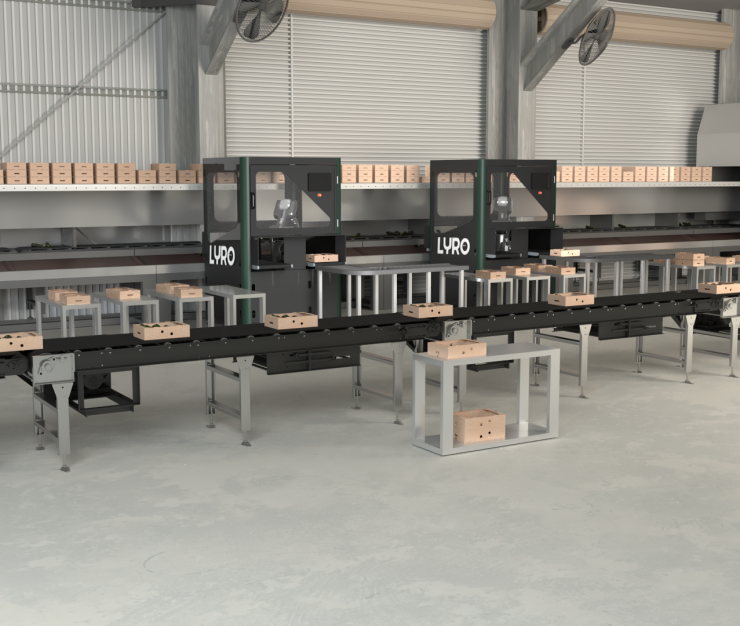Ensuring crops don’t rot in the fields amid severe labour shortages, Australian startup LYRO Robotics is helping local farmers get their produce to market.
Global food waste costs agriculture up to $2 billion every year, with 31 percent of produce wasted before it even gets off the farm. Labour shortages during the pandemic have exacerbated the issue, as farmers struggle to find enough workers to pick and pack crops.
Australian startup LYRO Robotics is set to change this, with the world’s first autonomous robot capable of picking up delicate fresh produce from a conveyor belt and packing it efficiently into boxes. LYRO Robotics offers robotic-packing as-a-service for Queensland farmers, helping to reduce initial capital costs for transitioning to automation. It is planning to fulfil orders for more than 20 robots after raising $1.5 million in pre-Series A funding.
LYRO Robotics’ latest funding comes from Artesian/Boab AI, AgFunder and a range of high net worth investors, joining original investor Japan’s Toyo Kanetsu.
LYRO Robotics was founded by world-leading experts in robotic vision, deep-learning and grasping, who formerly worked at the Australian Centre for Robotic Vision. As ‘Team ACRV’, they won the 2017 Amazon Robotics Challenge to create a robot which could identify, pick up and stow warehouse goods.
After two years of research and development, LYRO Robotics is initially focused on the needs of agriculture. The technology can be applied to a wide range of challenges, from manufacturing and warehousing to recycling, says LYRO Robotics co-founder Juxi Leitner.
“We have created the full technology stack – the brain, the eyes and the hands,” Dr Leitner says.
“Marrying computer vision with advanced grasp detection and high-level decision making allows our robots to do much more than simply put things in boxes – it lets them tackle a range of challenges which were previously too delicate or complex to trust to a machine.”
LYRO’s Robots can be quickly installed on existing packing lines. A conveyor belt feeds in produce, while packed boxes come out the other end. LYRO offers these robots as a service, as with a human worker, farmers only pay for how much the robot packs – with no upfront capital outlay – making it easy for farmers to incorporate the robot into their existing operations and financial systems.
“Unlike traditional automation systems, there’s no upfront expense and extended downtime as the solution is installed,” Dr Leitner says. “We can have a robot up and running in an hour, working on a produce packing line side-by-side with people.”
“We’re looking to scale up operations to reach farmers across Australia, helping them meet the labour shortages which threaten to stop their precious crops making it to the supermarket shelves.”

